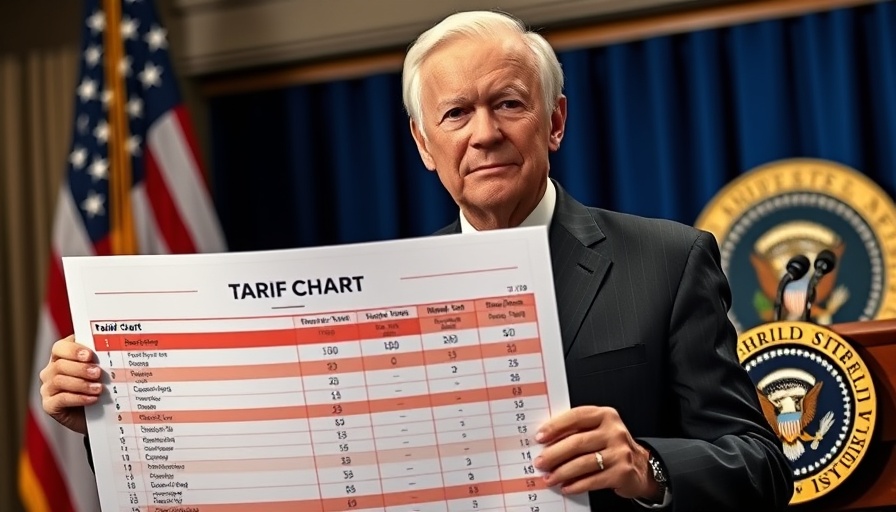
New Tariff Rates Set to Impact Caribbean Trade
In a significant move that reshapes economic relations, U.S. President Donald Trump has unveiled a 15% tariff on imports from Guyana and Trinidad and Tobago. This decision, effective immediately, comes after a contentious period during which the proposed tariff had soared to 38%, instigating serious concerns among Caribbean trade officials and government leaders.
Although the new tariff marks a respite for exporters, the Guyana Manufacturing and Services Association (GMSA) voiced that further reductions were desired, ideally aiming for a rate of 10%. Such a decrease would help enhance the competitive edge of their products in the U.S. market, which has been increasingly hard to maintain under rising tariff pressures.
The Diplomatic Efforts Behind the Reduction
The diplomatic negotiations that led to this reduction were described as arduous yet essential. The GMSA expressed gratitude towards the Guyana government for its persistent engagement with U.S. officials during these negotiations. Vice President Bharrat Jagdeo stated that while the adjustment to 15% is a positive step, ongoing discussions might yield even more favorable conditions.
The Broader Implications for Caribbean Economies
This revised tariff impacts not only bilateral trade but also the broader Caribbean region. The relief provided by the reduction is particularly important for smaller manufacturing exports, which form the backbone of various Caribbean economies. However, the remaining 15% rate still represents a challenge, especially as the costs associated with tariffs can ultimately be passed down to consumers.
Looking Ahead: Further Reductions?
As discussions between Guyana and the U.S. continue, there remains hope for a further decrease in tariff rates. This situation could be a litmus test for U.S.-Caribbean trade relations moving forward, with many stakeholders hoping that renewed diplomatic efforts can lead to more favorable and sustainable trading environments for all involved.
 Add Row
Add Row  Add
Add 




Write A Comment